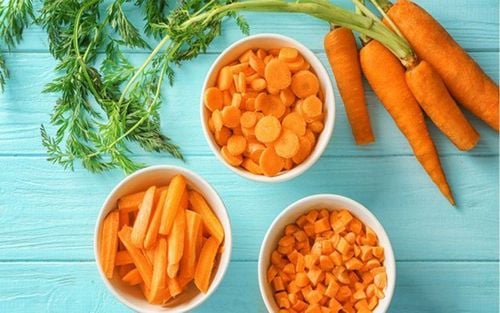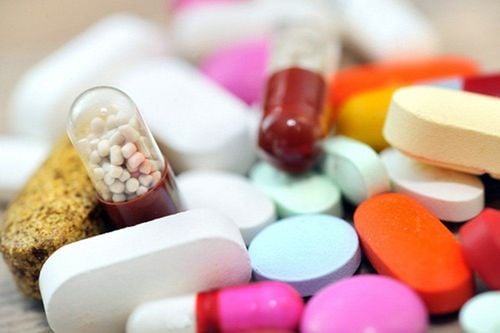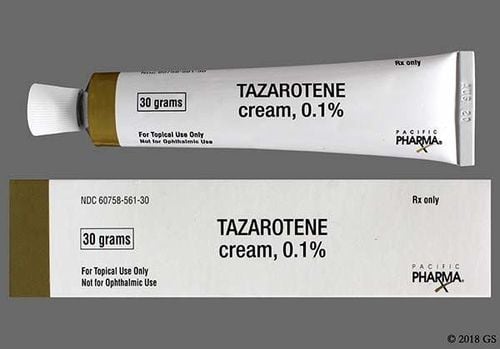This is an automatically translated article.
In this article, we explore the effects that carrot juice can have on blood sugar and describe ways in which carrots can benefit the health of diabetics. . We also look at the glycemic index (GI) of carrot juice, the best ways to prepare carrots, and other diet tips for people with diabetes.
1. Carrots and their effect on blood sugar
Some people believe that carrots raise blood sugar and people with diabetes should not eat them. People with diabetes may ask themselves questions about a diet that works best for them. A common question is, can people with diabetes eat carrots? The short and simple answer is yes. Carrots, like other vegetables like broccoli and cauliflower, are non-starchy vegetables. For people with diabetes, non-starchy vegetables are an important part of a healthy diet.
It is important to pay attention to the carbohydrate content of food for people with diabetes. However, many foods that contain carbs are also high in vitamins, minerals, and even fiber. Some of these foods, especially non-starchy vegetables, have little effect on your blood sugar levels. In this article, we will explore the impact of carrots on diabetes and provide some useful information about carbohydrates and diabetes.
1.1. Carrots and Diabetes In fact, colorful fruits and vegetables contain enough nutrients for a healthy diet. Carrots are famous for containing beta-carotene, a precursor to vitamin A. They also contain fiber, antioxidants, and other nutrients. One medium carrot contains only 4 grams of net (digestible) carbs and is a low glycemic index food. Foods that are low in carbs and low on the glycemic index generally do not have a beneficial impact on blood sugar levels. Research also shows that the nutrients in carrots may be beneficial for people with diabetes.
In an animal study, researchers looked at the importance of vitamin A in blood sugar control. They found that mice with vitamin A deficiency experienced dysfunction in pancreatic β cells. They also noticed a decrease in insulin secretion and a subsequent increase in blood sugar. These results also indicate that vitamin A may play a role in blood sugar control in people with diabetes.
B vitamins play an important role in many different areas of metabolism. One study found that vitamin B1 (Thiamine) and vitamin B6 deficiencies are common in people with type 2 diabetes. Furthermore, the early development of diabetic kidney disease is more common if vitamin B6 levels are more common. short. This study suggests that low vitamin B6 levels can negatively affect the symptoms of diabetes.

Nước ép cà rốt chứa nhiều vi chất có lợi cho sức khỏe người bệnh
Fiber. A high-fiber diet is an essential part of blood sugar management in diabetes. A recent review based on pooled results from 16 large-scale studies found clear scientific evidence that dietary fiber intake can help reduce the incidence of type 2 diabetes. Additionally, for people with diabetes, fiber supplements can help lower blood sugar levels both in the long term and fasting.
1.2. Healthy Diet for Diabetics For people with diabetes, following a healthy diet is very important in managing their condition. The National Institutes of Health (NIH) emphasizes that the healthiest diet for diabetes will include foods from all the food groups, including:
Vegetables Fruits Nuts Protein Fat-Free Milk or low fat According to the American Diabetes Association (ADA), the best way to improve blood sugar levels is through diet and exercise. Eating a healthy diet can help you lose weight. Even losing about 5% of your body weight can still help improve blood sugar levels.
To expand on the National Institutes of Health recommendations above, the American Diabetes Association suggested the following tips for healthy eating with diabetes:
Eat plenty of non-starchy vegetables, like tomatoes carrots, broccoli and zucchini. At least half of the diet of people with diabetes should be these nutritious vegetables. The best type of protein with a healthy diet is lean protein. About a quarter of a diabetic's diet should be a source of lean protein, such as chicken or fish. Limit the amount of carbs you eat at each meal. Try to eat starches that are high in fiber, as fiber helps improve blood sugar levels. Good sources of healthy fiber-rich carbs include beans, wholegrain bread, brown rice, and other whole grain food products. Fruit and low-fat dairy can be a great addition to a healthy meal. Be careful not to overdo it in terms of serving size. A small handful of fresh berries or half a glass of low-fat milk can be a good after-dinner option. Limit your intake of dried fruits and fruit juices because their carbs are more concentrated. Sometimes you may crave certain foods, and sometimes you may indulge in sweets. However, it is important to be mindful of what you are eating and how much you are eating. Eating too many processed, sugary foods can negatively impact your blood sugar. These foods can also lead to weight gain and have an adverse effect on your overall health. Choosing lower-carbohydrate options in small amounts and only occasionally is the best way to protect yourself from the negative effects of diabetes.

Nước ép cà rốt có thể bổ sung vào chế độ ăn lành mạnh cho người bệnh
2. Can diabetics use carrot juice?
Blood glucose, also known as blood glucose index, is the amount of sugar in a person's blood at the time of measurement. This sugar comes from the food we eat. Our bodies need sugar for energy, but too much sugar can cause problems. Uncontrolled blood sugar can lead to type 2 diabetes or worsen other medical conditions.
Carrots can be a safe option for people who have diabetes and are trying to maintain blood sugar levels. They are also non-starchy foods. So people can even enjoy a small amount of carrots if they are following a ketogenic or keto diet.
2.1. Glycemic Index The glycemic index is a value used to measure how well certain foods and beverages raise your blood sugar. The glycemic index runs on a scale of 1 to 100. A score of 100 means that a food has the same effect on our bodies as eating a corresponding amount of glucose.
The lower the glycemic index (GI), the slower your blood sugar rises after consuming that food. Raw carrots have a glycemic index of 16. GI for boiled carrots ranges from 32 to 49. That puts carrots in the low glycemic index food group:
Low glycemic index: 1-55 Only average glycemic index: 56-69 High glycemic index: 70 or higher The glycemic index of any food goes up if you cook or prepare them with honey or other carbohydrates. However, carrots are still rich in fiber, thus helping to slow down the rate at which sugar is released. They also have a lower glycemic index than other root vegetables like potatoes.
2.1. Glycemic load The glycemic index is not the only number we need to pay attention to. Another equally important type of indicator is the glycemic load. It combines the glycemic index with the serving size to give us an overall picture of the impact on our blood sugar. Eating foods with a low glycemic index but eating a lot will raise blood sugar levels.
Two small raw carrots have a glycemic load of about 8. That also puts carrots in the low glycemic load group:
Low glycemic load: 1-10 Average glycemic load: 11-19 High glycemic load: 20 or higher 2.3. Vegetables with a low glycemic index Fresh vegetables contain mostly water. They are also a great source of many nutrients, vitamins, and minerals. And many low glycemic index varieties, including:
Cabbage Asparagus Avocado Broccoli

Nước ép cà rốt và một số loại rau có chỉ số đường huyết thấp
Cabbage Cauliflower Celery Cucumbers Eggplant Greens Lettuce Mushrooms Chilli Tomatoes Okra Onions Spinach Pumpkin Radish Can people with diabetes comfortably eat vegetables contain starch - including carrots. Eating raw or cooked can help prevent processing from raising the glycemic index score. Various compounds in carrots like carotenoids, fiber, and vitamin A can help you control your blood sugar and prevent complications, such as diabetes-related target organ damage. Maintaining a healthy diet, reducing carbs, and increasing physical activity levels all play an important role in managing diabetes.
Please dial HOTLINE for more information or register for an appointment HERE. Download MyVinmec app to make appointments faster and to manage your bookings easily.
Reference sources: webmd.com, medicalnewstoday.com, healthline.com












